Structure of controversial London skyscraper topped out today
Land Securities and the Canary Wharf Group have revealed new photographs of London’s Walkie Talkie tower, which had its structural topping-out today.
Construction of the controversial tower, designed by Rafael Viñoly and also known as 20 Fenchurch Street, reached a “major milestone” according to the developers as the last of 6,000 separate steel sections was put in place, joining over 8,200 tonnes of British steel which make up the flared structure of the building.
Head of London development for Land Securities Colette O’Shea, said: “We’re thrilled with how rapidly construction progressed since we first broke ground just under two years ago. “It’s thanks to this great work that we are both on time and within budget, meaning we’ll be ready to bring much needed space to a supply-constrained market in spring 2014.
“We are seeing a strong endorsement of the location, design and efficiency of 20 Fenchurch Street as, with around 18 months until completion, we have already pre-let 23% to leading insurance and associated firms…with a further 11% in solicitors’ hands.”
Cormac MacCrann, the executive director of main contractor Canary Wharf Contractors, said: “It’s exciting to see 20 Fenchurch Street making its mark on London’s skyline. Today’s achievement is a testimony to the huge collaboration which has taken place between the whole design team, Canary Wharf Contractors and [structural engineer] William Hare.
“The progress to date puts us in great shape to start the construction of the roof of the spectacular sky garden at the top of the building, the completion of which is our next milestone.”
Earlier this week it was announced that the building will be powered by a highly-efficient fuel cell technology. Supplied by FuelCell Energy Solutions, this is said to be the first installation of its type in the City.
When complete, the tower will contain more than 28,000 cubic metres of concrete, 13,000 tonnes of structural and reinforcing steel and approximately 33,000 sq m of glass – an area equivalent to more than 4.5 football pitches.



















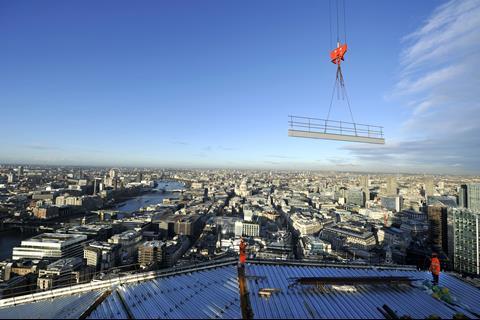
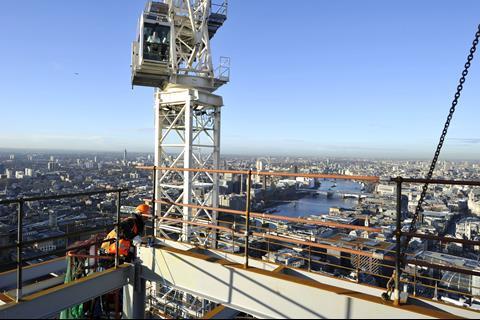
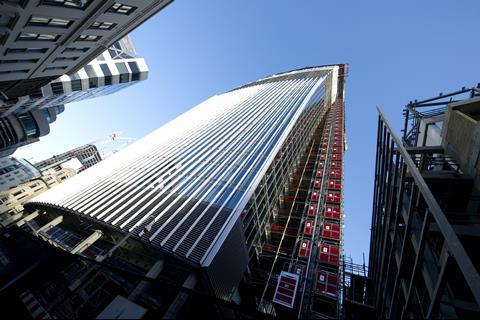
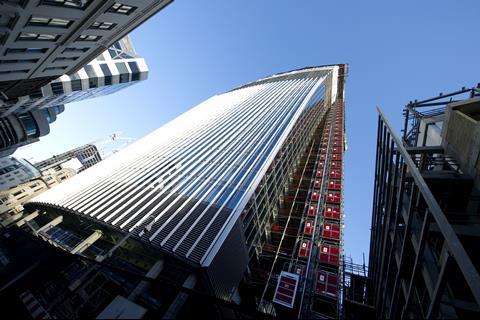
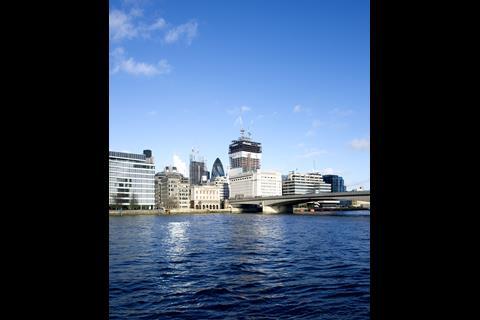
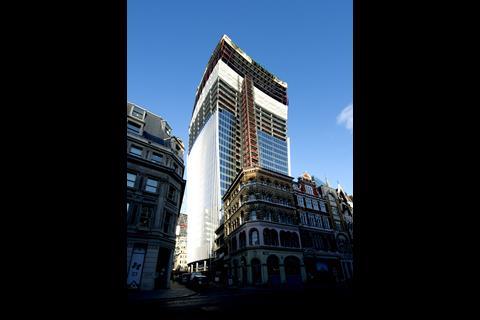







No comments yet